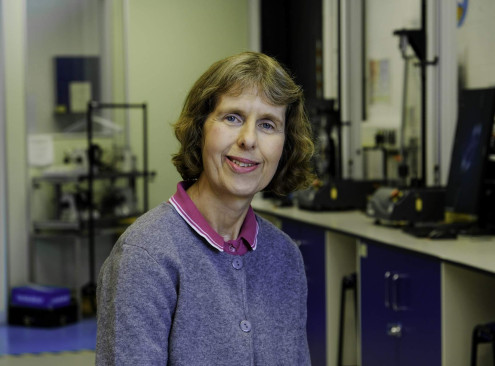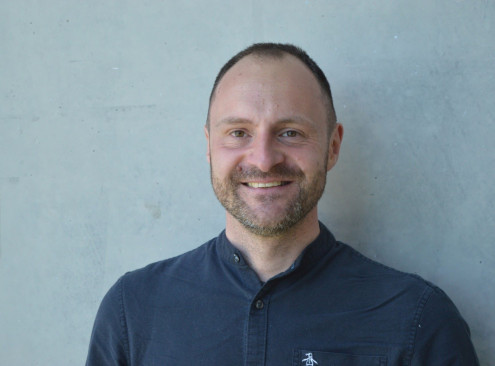© Pint of Science, 2025. All rights reserved.
AI in Action: Building Responsible AI for Tomorrow
An Evening of Insightful Talks
Discover how AI is shaping the future—and how we can shape AI. This evening of compelling talks brings together leading experts, innovators, and ethicists to explore the power and potential of artificial intelligence.
An Evening of Insightful Talks
Discover how AI is shaping the future—and how we can shape AI. This evening of compelling talks brings together leading experts, innovators, and ethicists to explore the power and potential of artificial intelligence.
Decoding Educational Disparities: Harnessing the Power of AI and Machine Learning for Enhanced Equity, Diversity, and Inclusion in Schools
Sona Hashempour
(Doctoral Researcher)
A Thought-Provoking Talk on Equity and Innovation
AI is transforming education—but is it making learning fairer or deepening existing divides? This insightful talk explores how AI and machine learning can decode educational disparities by analyzing school-level data to uncover systemic barriers in math education.
Key topics include:
Identifying inequities through AI-powered data analysis.
The risks of bias in AI-driven educational tools.
A model for responsible, transparent, and human-centred AI in education.
What to expect:
Real-world data insights into educational inequality.
Interactive discussions on the future of AI in classrooms.
Practical solutions for building fair and inclusive AI systems.
AI is transforming education—but is it making learning fairer or deepening existing divides? This insightful talk explores how AI and machine learning can decode educational disparities by analyzing school-level data to uncover systemic barriers in math education.
Key topics include:
Identifying inequities through AI-powered data analysis.
The risks of bias in AI-driven educational tools.
A model for responsible, transparent, and human-centred AI in education.
What to expect:
Real-world data insights into educational inequality.
Interactive discussions on the future of AI in classrooms.
Practical solutions for building fair and inclusive AI systems.

Brain-Inspired Computing and AI
Professor Stephen Lynch
(Professor of Digital Skills)
A Ground breaking Talk by Professor Lynch
The human brain—containing around 100 billion neurons and a thousand trillion synapses—remains the most powerful and efficient computer known, operating on just 25 watts of power. In contrast, a transistor-based supercomputer capable of replicating the brain’s functions would require the energy of an entire nuclear power station.
In this fascinating talk, Professor Lynch presents a revolutionary invention that uses brain dynamics to perform conventional computing. This groundbreaking research, which spans multiple disciplines, has the potential to transform both technology and medicine.
Key insights include:
Developing the world’s most powerful and low-energy computer inspired by brain dynamics.
Applications in medicine, including building test circuits for neurological conditions such as Alzheimer's, Parkinson's, and epilepsy.
The future of brain-based computing and its implications for science and society.
The human brain—containing around 100 billion neurons and a thousand trillion synapses—remains the most powerful and efficient computer known, operating on just 25 watts of power. In contrast, a transistor-based supercomputer capable of replicating the brain’s functions would require the energy of an entire nuclear power station.
In this fascinating talk, Professor Lynch presents a revolutionary invention that uses brain dynamics to perform conventional computing. This groundbreaking research, which spans multiple disciplines, has the potential to transform both technology and medicine.
Key insights include:
Developing the world’s most powerful and low-energy computer inspired by brain dynamics.
Applications in medicine, including building test circuits for neurological conditions such as Alzheimer's, Parkinson's, and epilepsy.
The future of brain-based computing and its implications for science and society.

Don’t Forget Me!
Claire Palmer
(Research Associate People-led Digitalisation)
What is a Digital Twin?
Types and examples of Digital Twins.
What a human-centred approach is and why we need one.
Who is “Me”? and how to capture “Me’s” information requirements (Personas - what and why).
How to include “Me” when gathering information requirements for a Digital Twin.
Some examples of the human-centred approach.
Types and examples of Digital Twins.
What a human-centred approach is and why we need one.
Who is “Me”? and how to capture “Me’s” information requirements (Personas - what and why).
How to include “Me” when gathering information requirements for a Digital Twin.
Some examples of the human-centred approach.

Biological AI. Computing with human neurons
Dr Eric Hill
(Reader)
Professor Paul Roach
(Professor of Biomaterials and Interface Science)
A Fascinating Public Talk on the Cutting Edge of Science
Imagine a future where artificial intelligence is powered by living human brain cells. This ground breaking talk explores new research demonstrating how human brain stem cells can be engineered into complex circuits, creating biological computers capable of solving problems from data.
Unlike current machine learning systems that demand ever-increasing computing power and energy, these brain-on-a-chip devices operate with remarkable efficiency, requiring only a small amount of nutrient-rich solution. This innovation could drive a paradigm shift in machine learning technology.
Key insights include:
How brain stem cells are engineered into artificial biological circuits.
The advantages of biological computing over traditional electronics.
Potential applications in AI, medicine, and beyond.
Imagine a future where artificial intelligence is powered by living human brain cells. This ground breaking talk explores new research demonstrating how human brain stem cells can be engineered into complex circuits, creating biological computers capable of solving problems from data.
Unlike current machine learning systems that demand ever-increasing computing power and energy, these brain-on-a-chip devices operate with remarkable efficiency, requiring only a small amount of nutrient-rich solution. This innovation could drive a paradigm shift in machine learning technology.
Key insights include:
How brain stem cells are engineered into artificial biological circuits.
The advantages of biological computing over traditional electronics.
Potential applications in AI, medicine, and beyond.

The Future of Industrial Design: How Digital Technologies are Redefining Creativity
Dr Patrick Pradel
(Senior Lecturer in Digital Design & Manufacturing)
Digital technologies are transforming the landscape of industrial product design, automating processes that once relied on human creativity. This insightful talk explores how AI, machine learning, and advanced algorithms are streamlining design workflows, enhancing efficiency, and unlocking new creative possibilities.
Key topics include:
How automation is reshaping the design process.
The impact of AI on creativity, efficiency, and innovation.
Future trends in digital product design and what they mean for designers and industries.
Key topics include:
How automation is reshaping the design process.
The impact of AI on creativity, efficiency, and innovation.
Future trends in digital product design and what they mean for designers and industries.








Map data © OpenStreetMap contributors.
Map data © OpenStreetMap contributors.
Other Fearon Ball Room Loughborough events
2025-05-20
Augmented Reality
Fearon Ball Room Loughborough
Rectory Road, Loughborough, LE11 1PL , United Kingdom
2025-05-21
Flying into the Future: How Research into Sustainable Aviation Can Help you Fly Greener
Fearon Ball Room Loughborough
Rectory Road, Loughborough, LE11 1PL , United Kingdom



